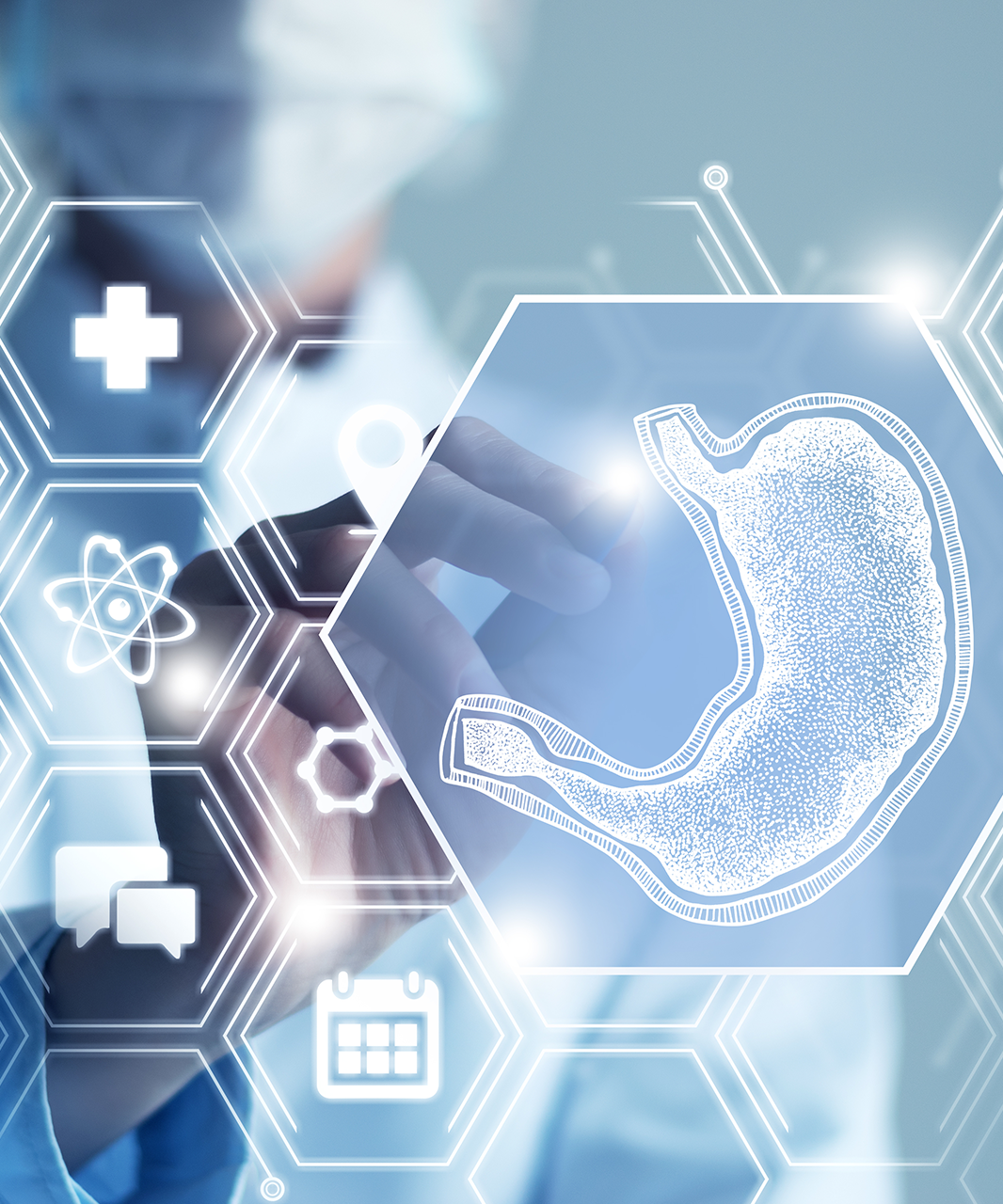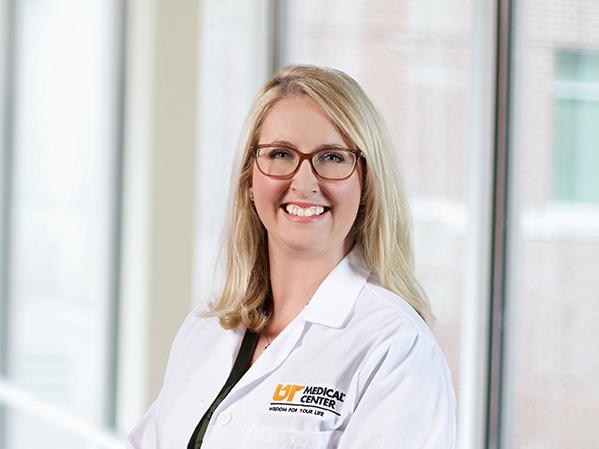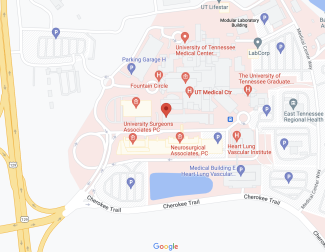Part of the Cancer Institute
High-Risk Gastrointestinal (HiGi) Cancer High-Risk Program
• Main Campus
Address
1926 Alcoa Highway, Bldg F (Cancer Institute)
Knoxville, TN 37920
Phone
865-305-9218

Part of the Cancer Institute
• Main Campus
Address
1926 Alcoa Highway, Bldg F (Cancer Institute)
Knoxville, TN 37920
Phone
865-305-9218

Before you visit the HiGI Cancer High-risk Program at the Cancer Institute, our providers will review your medical records, your family history of GI and other cancers, and the results of any tests you may have had.
After we review this information, we will schedule your first appointment to discuss your results and work with you to build a personalized risk-reduction program. Your risk-reduction program will be unique to you. For example, if your results suggest an increased risk for colon cancer, your plan may include a recommendation for an increased frequency of colonoscopy exams. We will also help to coordinate your risk-associated surveillance screenings.
Q: Why is high-risk especially important for people with a genetic risk for gastrointestinal cancer?
A: Some cancers may not have early warning signs, so high-risk is especially important when there is an increased risk based on a genetic variation. If a cancer or precancerous growth is identified, it can be caught early when it is most easily treated.
Q: Who will I see in the clinic?
A: You may see one of several providers while in the High-Risk GI clinic, including physicians, advanced practice providers (nurse practitioners or physician assistants), nutritionists, and genetic counselors. All your providers have specialty training in gastrointestinal cancer screening, risk reduction, and treatment.
Q: What is a “significant family history” of gastrointestinal cancer?
A: A significant family history of gastrointestinal cancer includes having two or more relatives on the same side of the family with gastrointestinal cancer (colorectal cancer, stomach cancer, pancreatic cancer). You may be at risk if you have had precancerous polyps removed before age 40, more than ten precancerous polyps removed at any age, a GI cancer before age 50, more than one primary cancer (including one GI cancer), or a diagnosis of Lynch Syndrome or familial adenomatous polyposis syndrome.
Q: Do I need a genetic mutation to participate in this clinic?
A: Yes, in most cases, having a known mutation is required to participate in this clinic so we can provide you with the correct individualized risk assessment and reduction program. If you have not yet had genetic testing, please contact our Oncology Genetics Clinic and inquire about how to proceed with testing.

The Pancreatic Cancer Early Detection (PRECEDE) Consortium is an international, multi-institutional collaborative group of experts to increase survival for pancreatic cancer patients by improving early detection, screening, risk modeling and prevention for those with a heritable risk for pancreatic cancer, through a novel model of collaboration and data sharing. PRECEDE’s mission is to transform the early detection and prevention of pancreatic cancer, with the aim of increasing the 5-year survival rate from 10% to 50% within the next 10 years.
With over 30 leading academic medical centers across the globe, PRECEDE has assembled the largest high-risk patient cohort, with longitudinal clinical data and biospecimen acquisition and tracking.

Certified Genetic Counselor
Clinical Focus:
Oncology Genetic Counseling, Hereditary Cancer, Tumor, and Polyposis Risk Syndromes
About:
I've always been a "why" person and our DNA reveals "why" some diseases, like cancer, impact certain folks and their loved ones. I relocated to Knoxville in 2018 and it's been a privilege to get to know and care for folks in East TN. Outside of work, I'm heavily invested in my husband's ministry as a college pastor and spend time with our son and our dog, Knox.
Address
1926 Alcoa Highway, Bldg F (Cancer Institute)
Knoxville,
TN
37920
Where we are
We are located in Bldg. F (The Cancer Institute) at UT Medical Center
parking
Paid parking at building, and valet services are available.

At the University of Tennessee Medical Center Cancer Institute, we treat patients who have gastrointestinal (GI) cancers and provide a high-risk surveillance and risk reduction program to patients at an increased risk for these cancers.
If genetic testing shows you are at high risk for GI cancer, our surgical oncologists, genetic counselors, and advanced practice providers can expertly assess, screen, and monitor you to help reduce your risk.
Programs for screening and surveillance of GI cancers can detect cancer at an earlier stage when it is often curable. We can help assess your cancer risk and design a personal, evidence-based high-risk plan.